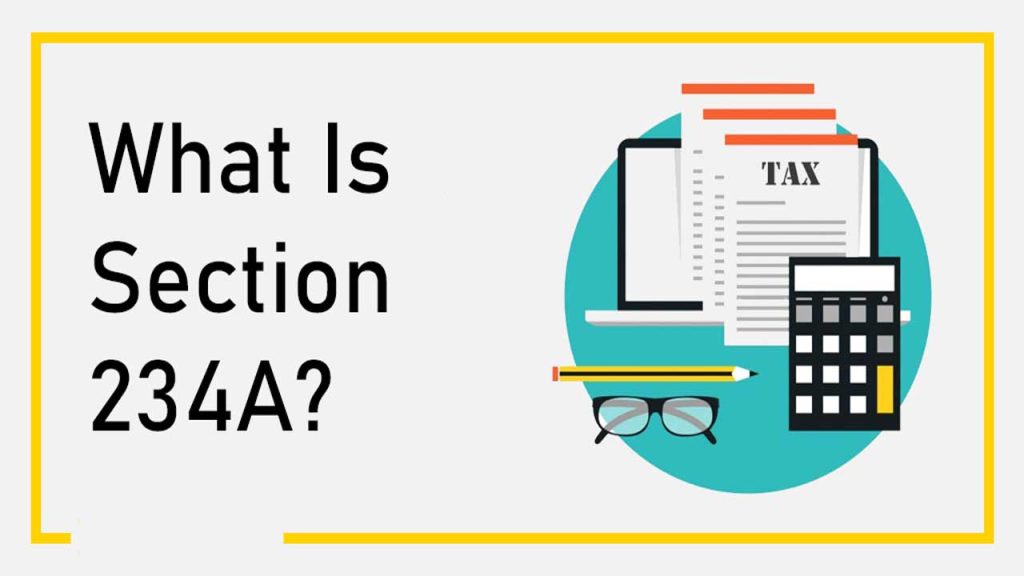Section 234A – There are several penalties mostly in the type of penalties in the Income Tax Act for each error. If people do not pay taxes before the due date or do not meet with tax laws and regulations, they would be entitled to pay fines in the form of interest on the tax due in respect of the tax. U/S 234 of the Income Tax Act 1961, the instructions and rules for these fines are set down.
The situations during which the taxpayer may be penalized under such a clause are defined as defaults in the furnishing income. There are the following:
- When he or she doesn’t really pay taxes on time.
- If the person does not have the new employer for FORM 16 since the business has changed.
- If the taxpayer failed to obey the laws on taxes.
For both of these errors, people must pay interest that is paid in three heads, i.e.

Section 234A – Delay in submitting the ITR
Section 234B – Late payment of Advance Tax
Section 234C – Delayed payment of the Advance tax
Concept of section 234A
Delays in submitting the tax return falls u/s 234A. If a taxpayer submits his/her tax return late, a fine in the form of interest would be paid. The taxpayer will file a refund of his/her salary by the 31st July of the FY.
Interest payable in Section 234A
In the event of a late filing of the Income Tax Return (ITR), the taxpayer is liable to pay interest at 1% per month. This balance is measured on the amount of the tax remaining. The person shall pay interest on the very first day (just after due date) to the date over which the ITR is filed. Also, there are two scenarios for this:
If the taxpayer hasn’t really requested his tax refund.
In this situation, the taxpayer must bear the interest in the gross balance of the tax remaining.
For instance
Mr Raghu has to submit his ITR by 31 July 2019 but has postponed and lodged his ITR for the FY 2018-19 in February. The unpaid balance of his tax is ₹2.5 lakh. Mr Viraj has postponed his ITR for 7 months (August, September, October, November, December, January, February) (a portion of a month is closed) and if he believes that he has not received his tax refund, he would be responsible for paying interest as a penalty.
The interest to be paid is = 250000 X 1% X 7 = 17500.
U/S 234A, Mr Viraj is responsible for paying ₹17500 as a penalty in the form of interest assessed @ 1% for months which have been overdue.
If the taxpayer has requested his tax refund.
In the event that a taxpayer has received a tax refund and though he or she has not filed his or her ITR on schedule, the interest will be imposed on the net amount unpaid for him/her. This will be measured as the gross remaining amount of tax less the tax refund.
For instance:
Mr Ajay is liable for a tax refund of ₹40000 when filing his ITR in February 2019. The remaining balance of tax to be collected shall be ₹150,000. Illegal interest shall be paid on the net value received by modifying the tax return of the remaining amount. Net outstanding amount of tax = 150000-40000= 110000.
The interest to be paid by him would then be = 110000 x 1% x 7= 7700
The individual would be held accountable for not submitting a return on time u/s 234A. So, if there is a pause in submitting your return, be prepared to pay more in the form of criminal interest. Interest paid with a wait is 15 per month for the months in which you have postponed the filing of an income tax return. The return needs to be filed by 31 July of the FY in which you have to pay income tax.



